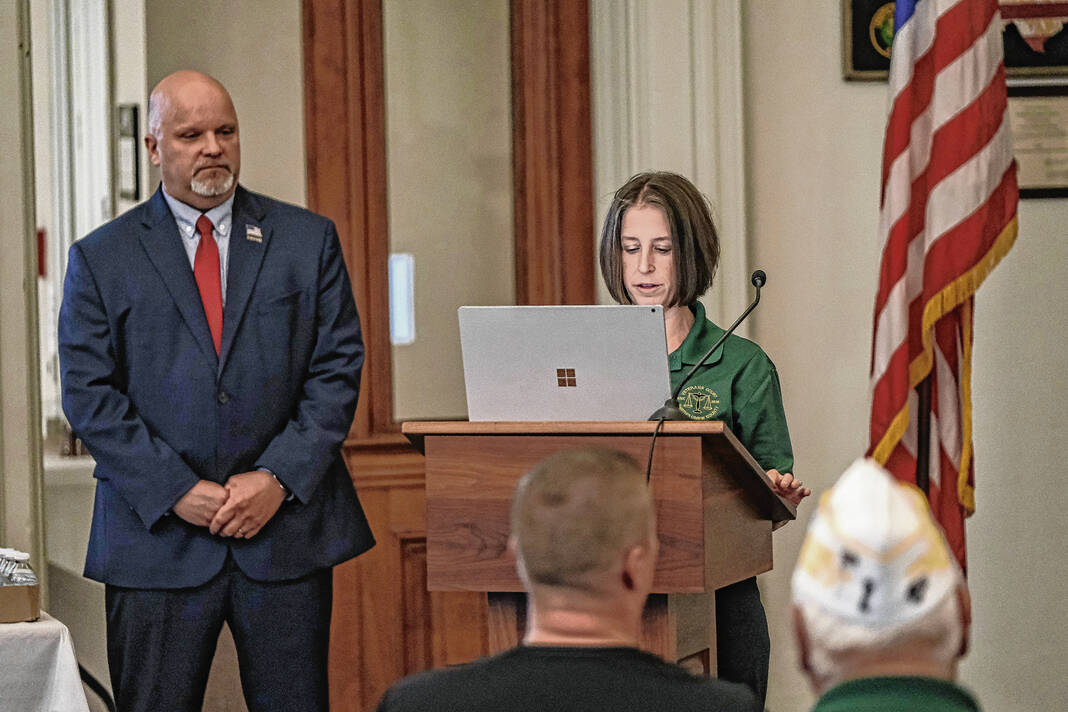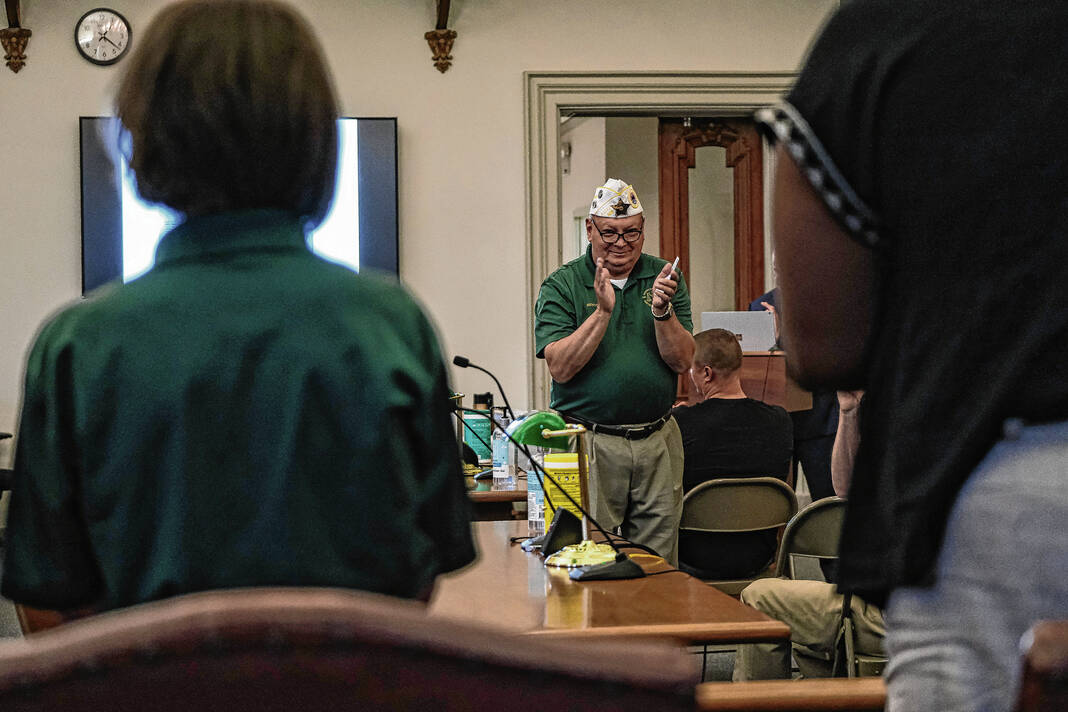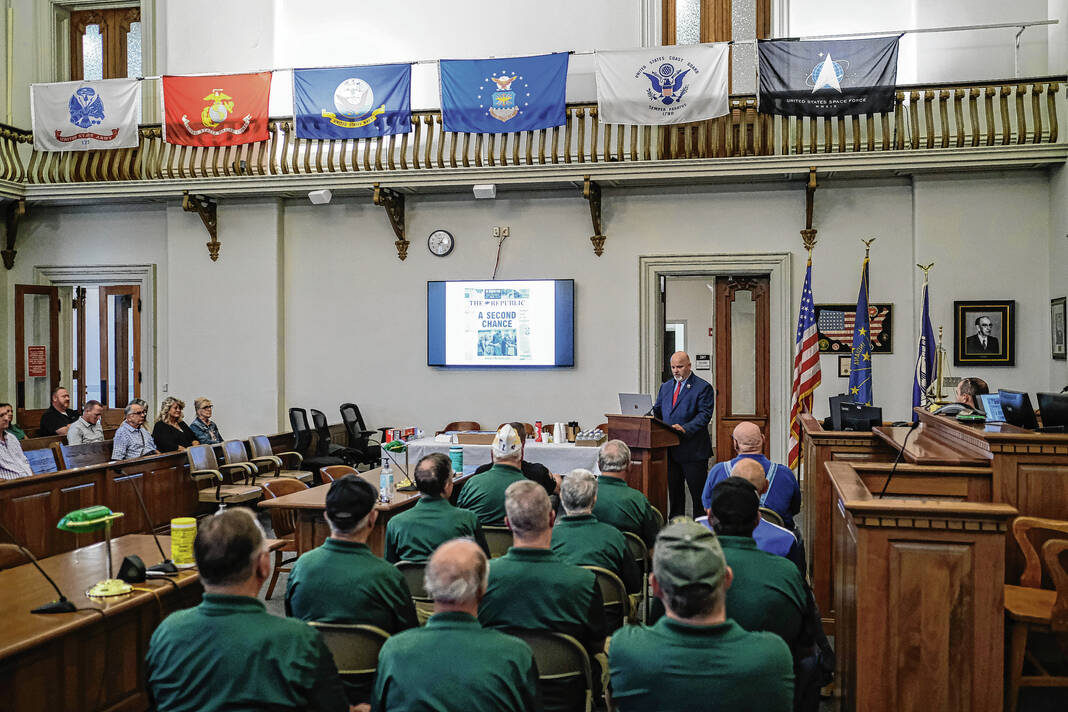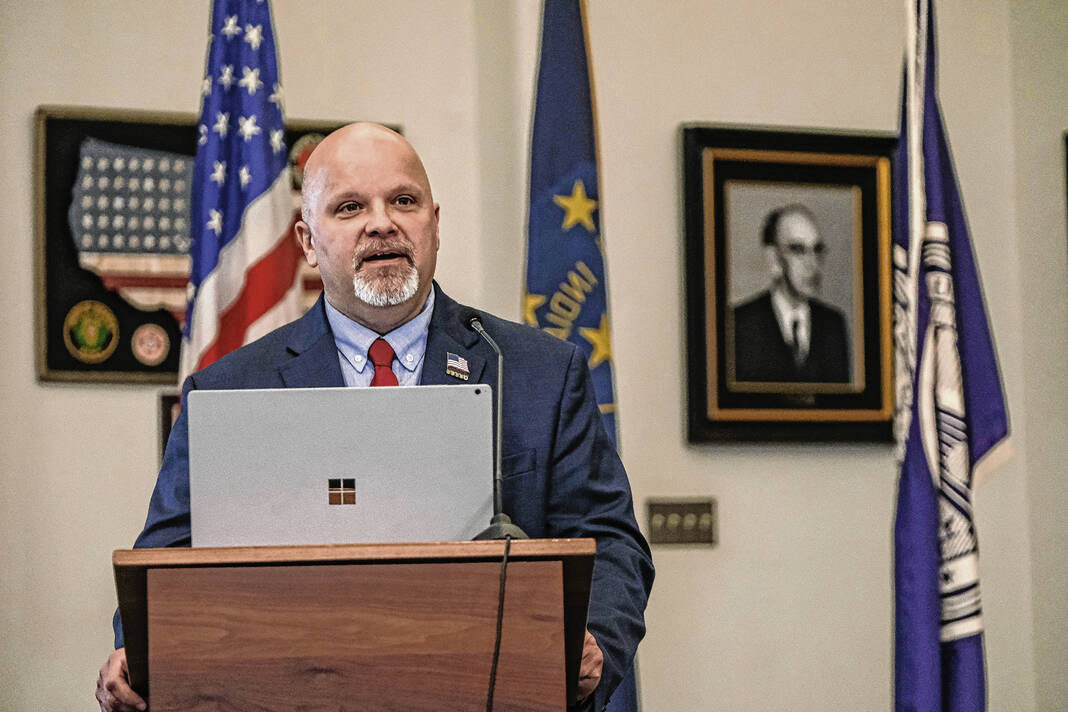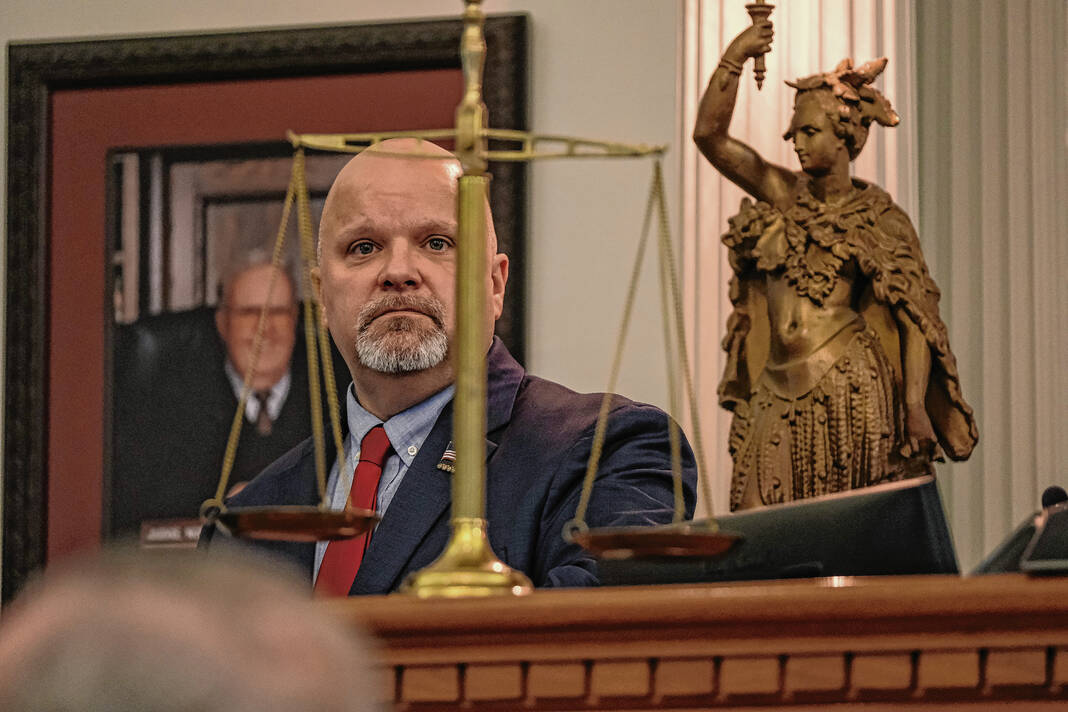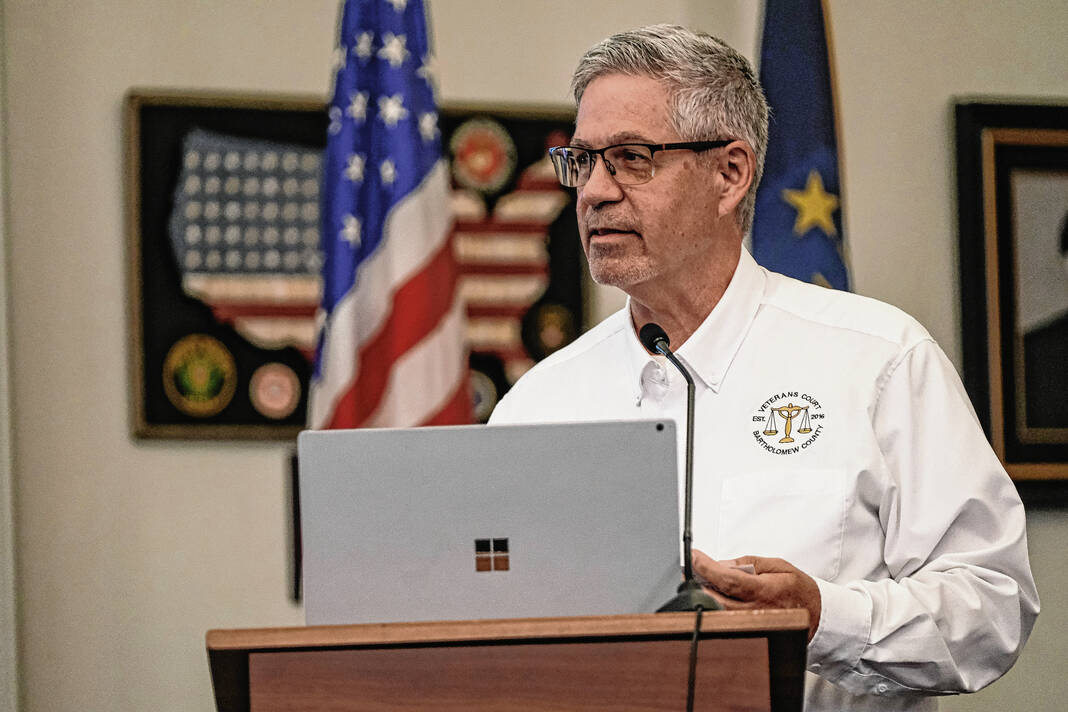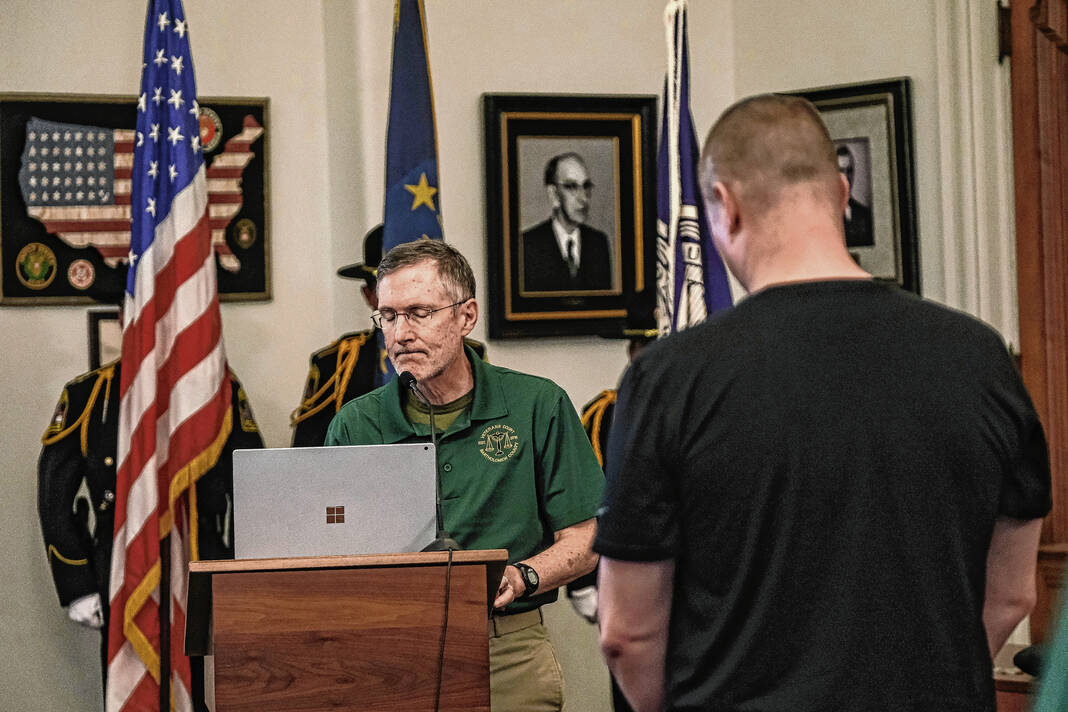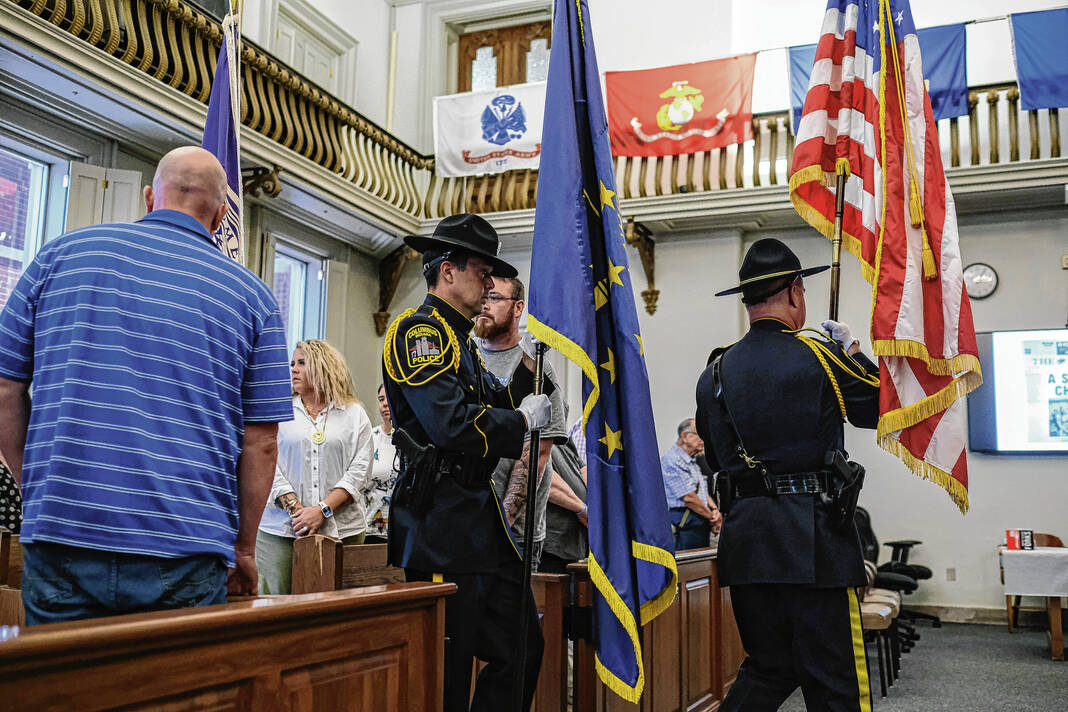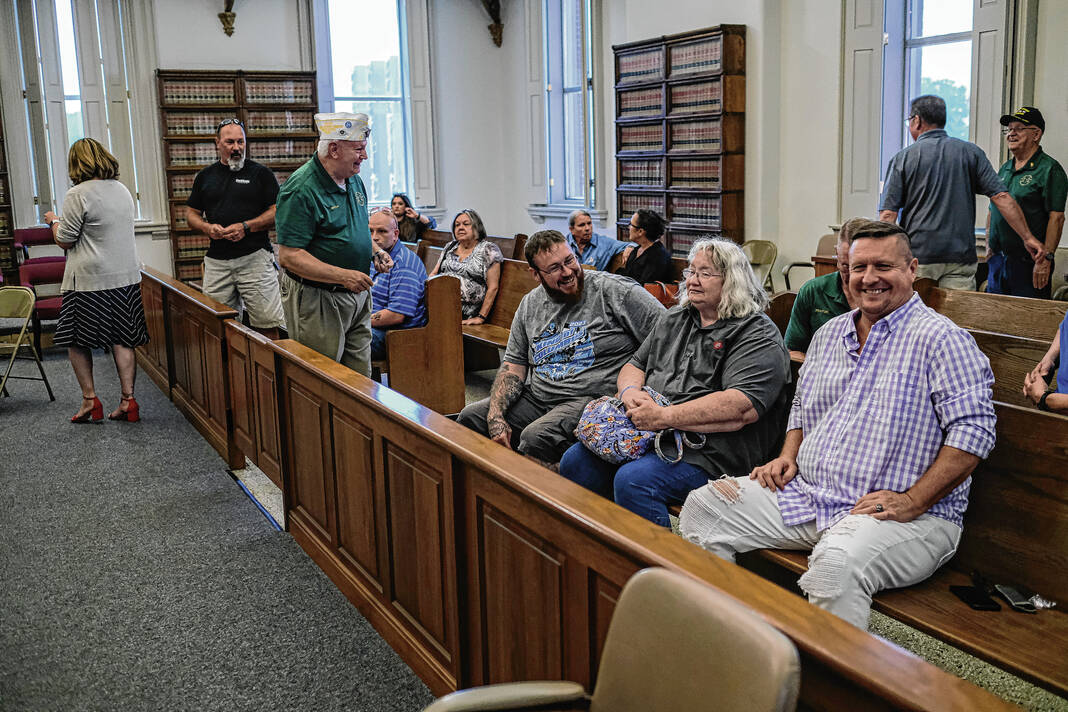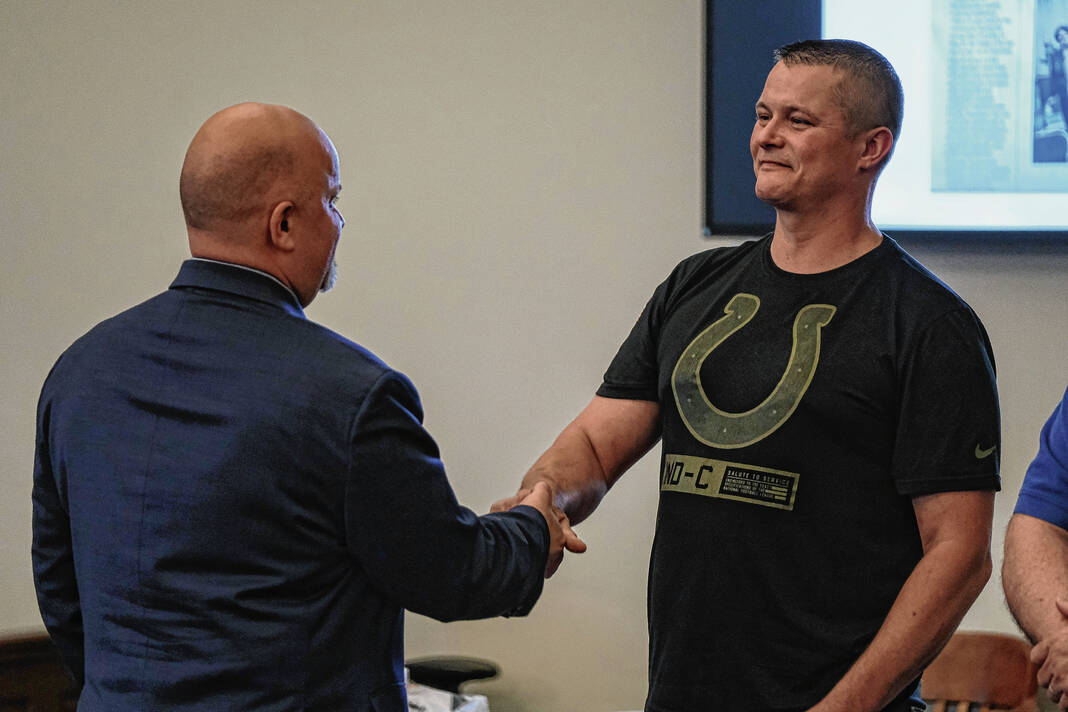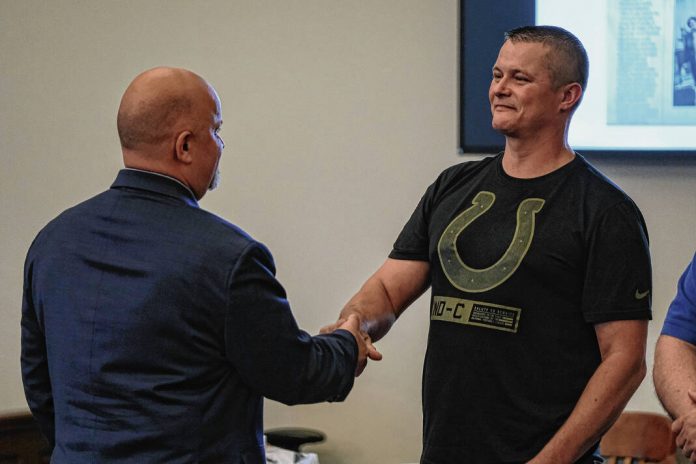
Mike Wolanin | The Republic Bartholomew Superior Court 1 Judge James Worton, left, presents Army veteran Tony Wiseley with a coin for completing the Bartholomew County Veterans Treatment Court program during a graduation ceremony in Bartholomew Superior Court 1 at the Bartholomew County Courthouse in Columbus, Ind., Thursday, June 8, 2023.
From former military leaders to current elected officials, nearly 50 people crowded into a Columbus courtroom to congratulate the most recent graduates of the Bartholomew County Veteran’s Court.
Since the first participants entered the voluntary program in 2017, the problem-solving treatment course has focused on helping non-violent veterans with service-related issues such as post-traumatic stress disorder or substance abuse disorders.
“It is a program that offers treatment alternatives that connect veterans with their earned VA benefits,” said Bartholomew Superior Court 1 Judge James Worton, who leads the program.
Problem-solving courts steer away from punishment if the defendant take the Veteran’s Court program seriously. Over a dozen mentors work with judges, prosecutors and staff to invert the traditional adversarial nature of criminal court proceedings. Instead, all parties work to address individual causes that lead veterans to be charged with criminal offenses.
The four graduates honored this week are:
- Christopher Thompson – U.S. Air Force
- Robert ‘Tony’ Wiseley – U.S. Army
- Ronald Taylor – U.S. Army and Indiana National Guard
- Mason Eden – U.S. Coast Guard
Veterans who complete the program typically have their charges reduced or dismissed. Statistics show those graduates are also unlikely to return to court for criminal offenses.
But getting through the intense program is difficult. Participants must complete five “levels”to graduate. Each level includes requirements for drug screenings, court visits and meeting with case managers.
The obligations of Veteran’s Court are far more strict that probation requirements, Wiseley said.
”You have to wake up every day, call a drug screen number, do a drug test three times a week for the first six months, come to court every other Thursday,” Wiseley said. “There’s also a treatment program, as well as a requirement to attend an after-care program such as Alcoholics or Narcotics Anonymous.”
Wiseley was arrested in March 2020, for operating a vehicle while intoxicated when his Chevrolet SUV hit a drive-thru speaker box at a local fast-food restaurant, court records state. While he was able to complete the program in 18 months, Worton said most participants take up to two years.
Since the establishment of the Veteran’s Court, Bartholomew County has applied the same problem-solving approach to other specific problems by established the Drug Recovery and Family Recovery courts.

